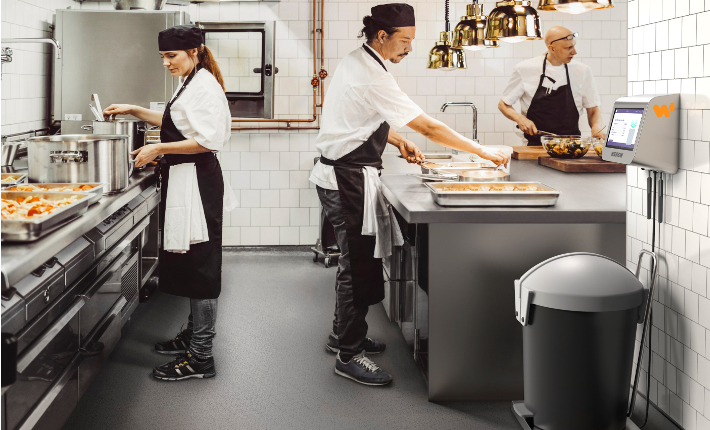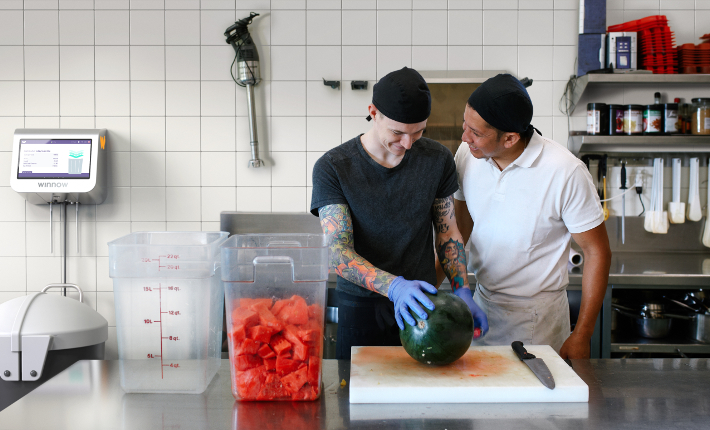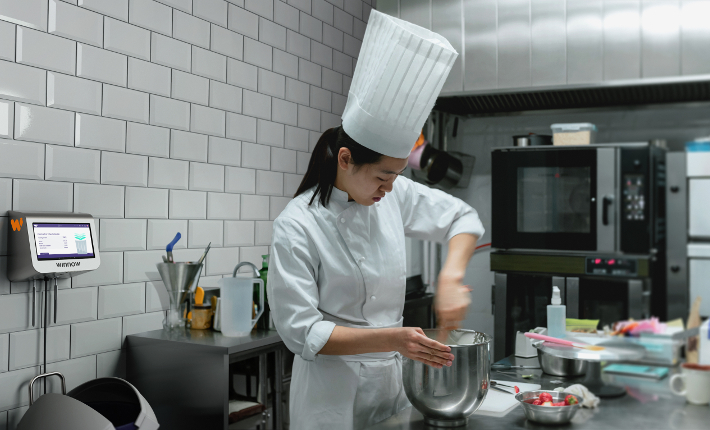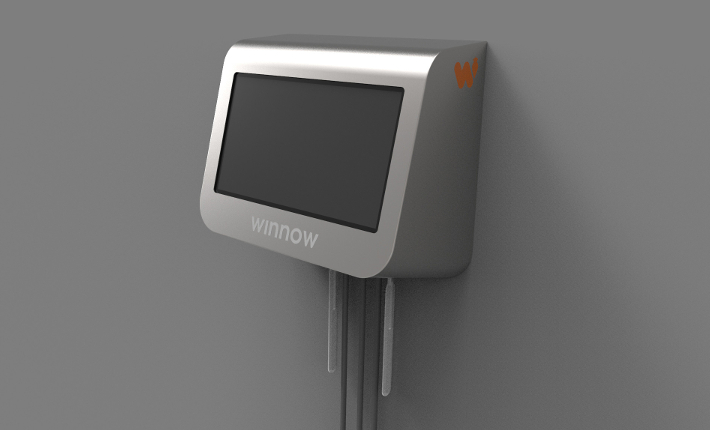Winnow Vision | To tackle food waste with AI
Winnow launched on Friday 22 of march its new AI-enabled product, Winnow Vision, to revolutionize food management in commercial kitchens for the benefit of both businesses and future generations. Using a camera, a set of smart scales and the same type of machine learning technology found in autonomous vehicles, Winnow Vision ‘learns’ to recognise different foods being thrown in the bin and calculates the financial and environment cost of this discarded food to commercial kitchens. Businesses and chefs can then adjust their food purchasing decisions accordingly, reducing their spending and tackling a fundamental problem of food waste: overproduction.
Helping hospitality businesses to reduce the issue of food waste is in the DNA of Winnow. They are driven as a team to tackle food waste and have a clear vision of how to do it. They are building a future kitchen that is highly efficient, sustainable and ensures that food ends up where it is supposed to.
The launch of Winnow to tackle food waste
The launch follows a proof of concept phase launched in January 2018 with early adopter partners IKEA and Emaar Hospitality Group, to test Winnow Vision’s technology in leading commercial kitchens around the world. Winnow and its early adopter partners have been working on the technology since October 2017. The pilot proved categorically that Winnow Vision surpasses human levels of accuracy and enables chefs to run smarter, more profitable and more efficient kitchens.
The launch of Winnow Vision follows the success of Winnow’s first device, which consisted of a set of smart scales and identified food manually. Winnow has helped commercial kitchens save more than $30 million in annualised food costs which equates to preventing over 23 million meals going in the bin. The new, AI-powered Winnow Vision is already installed in over 75 kitchens and the technology will be rolled out to hundreds more this year.
Foodwaste is a global issue
Globally, a third of all food never reaches our forks. If food waste were a country, it would be the third largest emitter of greenhouse gasses after the USA and China. Food waste is also a completely unnecessary financial burden for businesses to bear, costing the global economy around $1 trillion in lost output – equivalent to around 1.5 per cent of global GDP. Food waste costs commercial kitchens between five and 15 per cent of all food purchased, with some kitchens wasting up to 20 per cent of all the food they buy. Food waste costs the hospitality industry alone around $100bn every year – a number that Winnow Vision will slash.
With Winnow Vision, businesses install a piece of technology that can already recognise most food items and can be trained to learn other menu items in any kitchen. During the training and automation phases, the Winnow Vision system takes human input, providing a shortlist of possible menu items for kitchen staff to select, to quickly improve its predictions based on feedback. Over time, the system continues to improve and will automatically recognize food with no human interaction. Chefs can benefit from full reporting in their kitchens, helping cut food waste and save money with minimal to no effort.
About Winnow
Winnow develops cutting-edge digital tools to help chefs run more profitable, sustainable kitchens. Launched in a single staff restaurant in 2013, Winnow is trusted today by thousands of chefs in over 40 countries, in whose kitchen’s food waste is consistently cut in half. Together Winnow and its partners are saving over 23 million meals a year from the bin: the equivalent of $30 million in food cost savings for our clients.
Website: Winnow



















